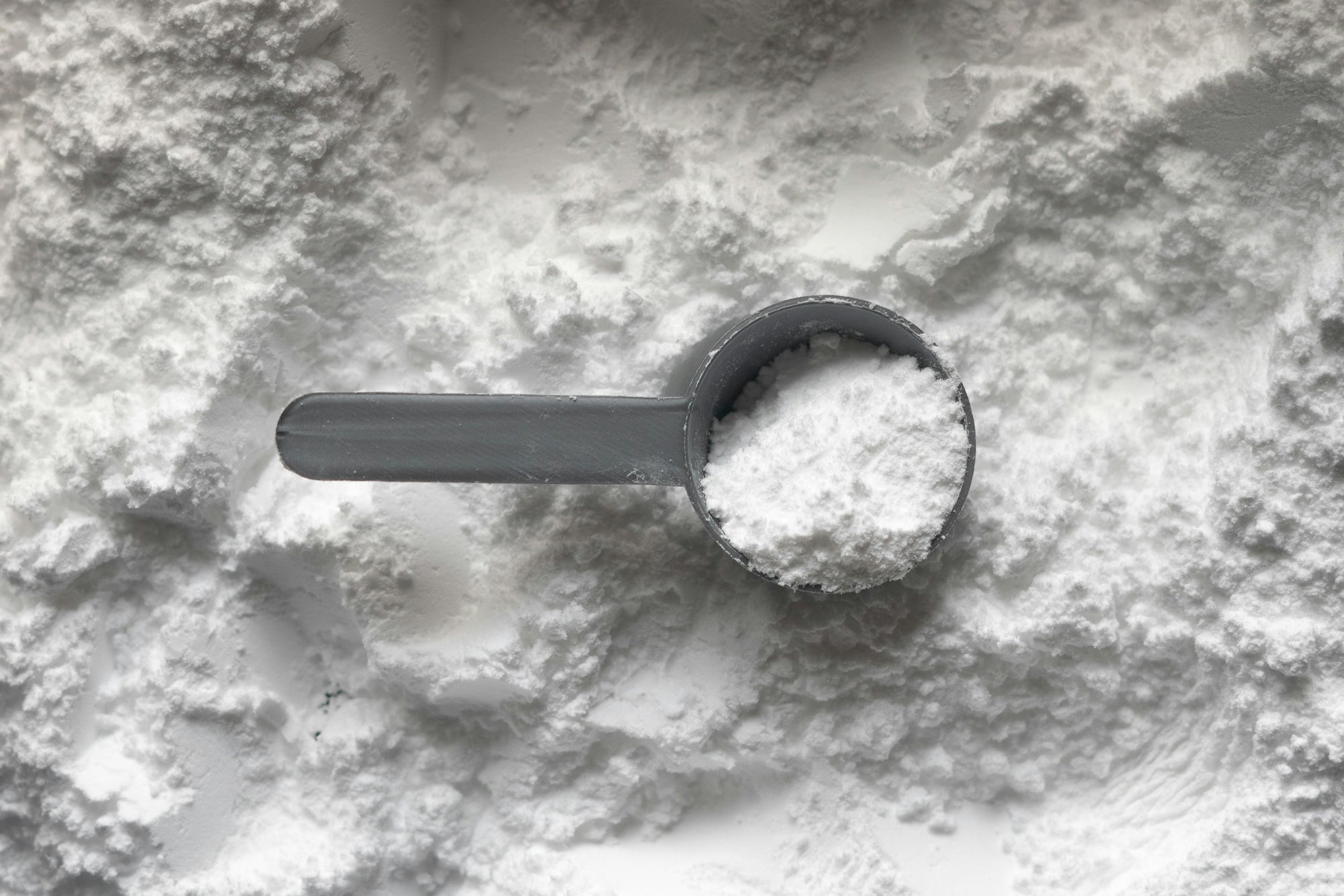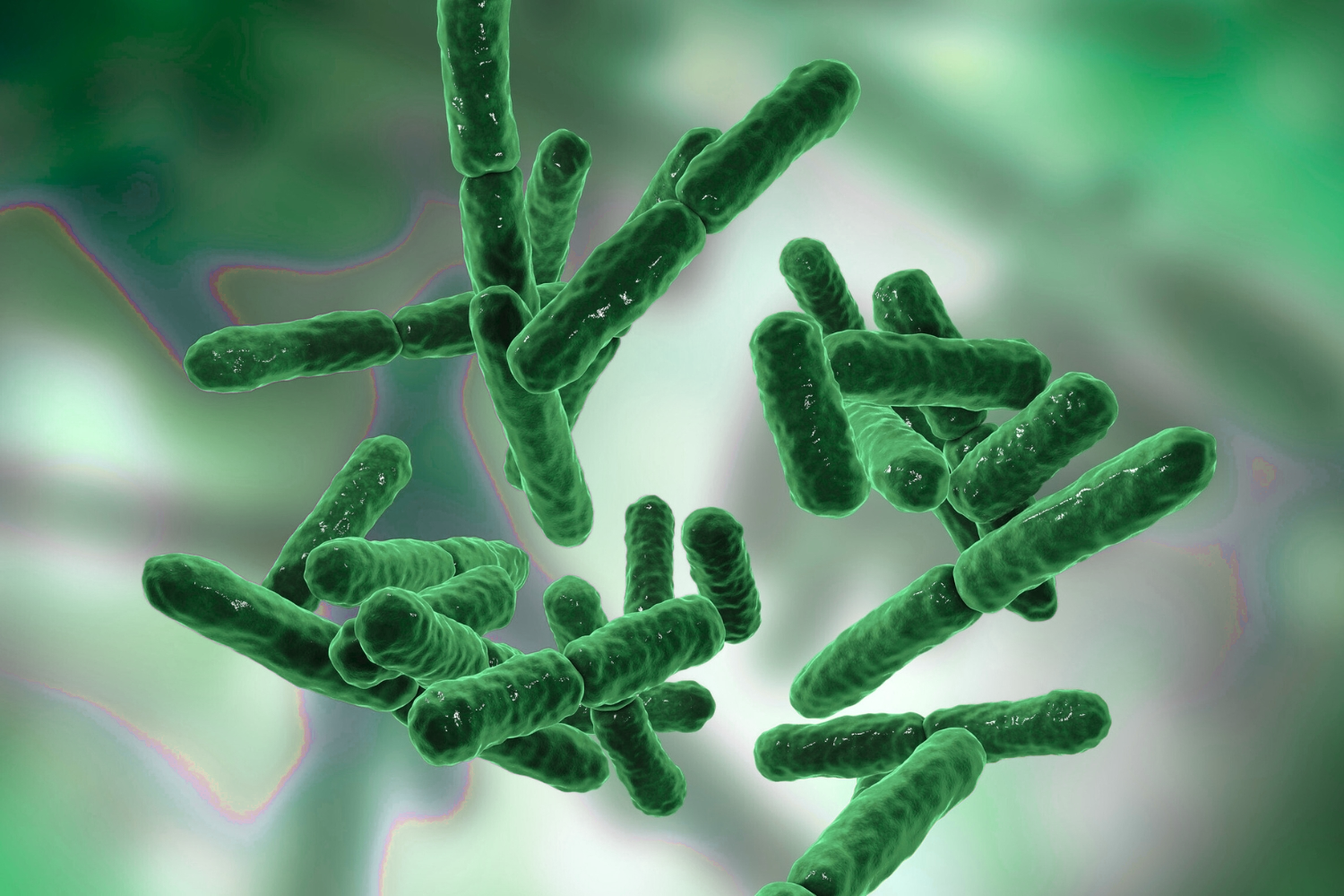Zertifiziert Vegan (Vegan Society)
Frei von Allergenen
Glutenfrei
Laktosefrei
Gentechnikfrei (Non-GMO)
Sicher in der Anwendung
BioMe+ ist ein synbiotisches Getränk, das für die Gesundheit von Darm und Gehirn entwickelt wurde.
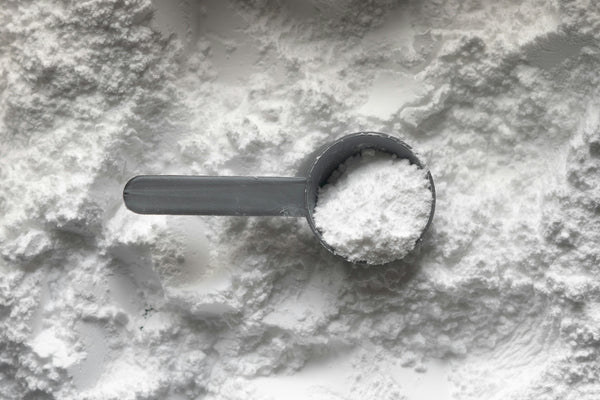
Funktion
Nähren die nützlichen Darmbakterien, fördern eine regelmässige Verdauung und unterstützen das Sättigungsgefühl.Inhaltsstoffe: Fructooligosaccharide, Inulin
Inhaltsstoffe
Fructooligosaccharide, Inulin
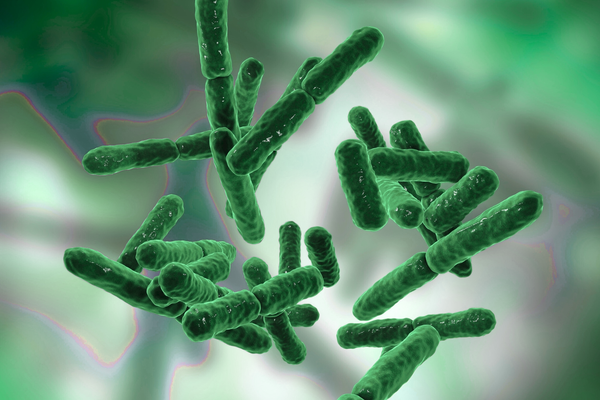
Funktion
Unterstützen das Gleichgewicht im Darm, stärken die Darm-Hirn-Achse und fördern Stimmung, Schlaf und Verdauung.
Inhaltsstoffe
Lactobacillus rhamnosus, Lactobacillus helveticus, Bifidobacterium longum, Bifidobacterium animalis subsp. lactis, Lactiplantibacillus plantarum

Funktion
Beruhigt das Nervensystem, verringert die Stressanfälligkeit und unterstützt erholsamen Schlaf.
Inhaltsstoff
Magnesium
Rein. Wirksam. Geprüft.
Wir wissen, dass es entscheidend ist, was du deinem Körper zuführst.
Wissenschaftlich fundiert
Entwickelt für die Darm-Hirn-Achse
Zertifiziert Vegan
Premium-Inhaltsstoffe
Gesundheitsweiterbildung
Hergestellt in der EU
Nährwertangaben
Zutaten
Häufig gestellte Fragen zu BioMe+
Was ist BioMe+ und was sind die wichtigsten Zutaten?
BioMe+ ist ein mineralstoffangereichertes Synbiotikum, das
entwickelt wurde, um die Darm-Hirn-Achse zu unterstützen.
Die wichtigsten Zutaten sind:
- Eine Mischung aus fünf Probiotika-Stämmen, die für ihre positiven Auswirkungen auf die Darmgesundheit, die Stimmung und das Stressmanagement bekannt sind.
- Lactobacillus rhamnosus
- Lactobacillus helveticus
- Bifidobacterium longum
- Bifidobacterium animalis subsp. Lactis
- Lactiplantibacillus plantarum - Die Präbiotika Inulin (aus Chicorée-Wurzel) und Fructooligosaccharide (FOS aus Zuckerrüben), die das Wachstum und die Aktivität nützlicher Darmbakterien fördern.
- Magnesium (als Magnesiumglycerophosphat), das aufgrund seiner hohen Bioverfügbarkeit zur normalen psychischen und nervlichen Funktionsweise beiträgt und Müdigkeit und Erschöpfung reduziert.
- Maltodextrin (aus NON-GMO Mais), das als Träger und Stabilisator für die Probiotika wirkt.
Auf welche Weise trägt BioMe+ zur Verbesserung der Gesundheit bei, insbesondere im Hinblick auf die Darm-Hirn-Achse?
BioMe+ wurde entwickelt, um die Gesundheit durch die
gezielte Unterstützung der Darm-Hirn-Achse zu verbessern, indem eine
Kombination aus Probiotika, Präbiotika und Magnesium verwendet wird.
So funktioniert BioMe+:
- Probiotika tragen zu einem ausgewogenen Darmmikrobiom (Eubiose) bei, das mit verbessertem gastrointestinalem Wohlbefinden, einer positiveren Stimmung und besserem Stressmanagement in Verbindung gebracht wird. Dies geschieht über verschiedene Wege, darunter der Vagusnerv, das endokrine System, das Immunsystem sowie die Produktion kurzkettiger Fettsäuren (SCFAs).
- Präbiotika unterstützen das Wachstum dieser nützlichen Bakterien und verstärken deren positive Effekte.
- Magnesium spielt eine entscheidende Rolle bei neurologischen und psychologischen Funktionen und unterstützt somit die Darm-Hirn-Achse.
Klinische Studien haben gezeigt, dass die spezifischen
Probiotika-Stämme in BioMe+ die Gehirnfunktionen im Ruhezustand und
psychologische Symptome wie Depressionen, Angstzustände und stressbedingte
Magen-Darm-Probleme positiv beeinflussen können.
Wie beeinflussen die Präbiotika in BioMe+, Inulin und Fructooligosaccharide (FOS), die Darmgesundheit?
Bei Braingood steht Forschung im Mittelpunkt unseres Handelns.
Wir wählen nur Inhaltsstoffe aus, deren Wirksamkeit klinisch belegt ist.
Das bedeutet, dass ihre Vorteile in klinischen Studien nachgewiesen wurden und in internationalen, peer-reviewed Fachzeitschriften veröffentlicht sind, die die höchsten wissenschaftlichen Standards erfüllen. Du kannst die Forschung, die BioMe+ und seine Inhaltsstoffe unterstützt, hier nachlesen.
Wir arbeiten mit dem Green Beat Institute for Nutrient Research zusammen, einer führenden Forschungseinrichtung in Österreich, um sicherzustellen, dass unsere Formulierungen auf den neuesten wissenschaftlichen Erkenntnissen basieren. Green Beat führt Studien zu Nahrungsergänzungsmitteln durch und veröffentlicht die Ergebnisse in peer-reviewed Zeitschriften, in denen unabhängige Experten die Forschung auf Genauigkeit und Glaubwürdigkeit prüfen.
Durch diese Partnerschaft übersetzt BrainGood bahnbrechende Forschung in effektive, wissenschaftlich fundierte Nahrungsergänzungsmittel, die die Darm-Hirn-Immun-Achse unterstützen – und dir helfen, dich von innen heraus bestens zu fühlen.
Warum ist BioMe+ ein Pulver in einem Sachet und keine Kapsel?
BioMe+ wird als Pulver in einem Sachet angeboten, weil die Menge an Präbiotika, die zur Unterstützung der Probiotika-Stämme erforderlich ist, zu groß ist, um in eine Kapsel zu passen.
Das Pulverformat ermöglicht es auch, die 30 Milliarden KBE* lebender Mikroorganismen pro Sachet mit Wasser zu aktivieren. Diese Aktivierung ist entscheidend, da die probiotischen Stämme stärker werden, wenn sie aktiviert sind, und eine bessere Chance haben, den Verdauungsprozess zu überstehen.
*KBE steht für "Koloniebildende Einheiten" und ist eine Maßeinheit, die verwendet wird, um die Anzahl der lebenden Bakterienzellen zu bestimmen.
Wie schmeckt BioMe+?
Es hat einen neutralen Geschmack, was einen grossen Vorteil bietet, da dieser es ermöglicht, das Pulver problemlos mit anderen Getränken zu mischen, ohne deren Geschmack unangenehm zu verändern.
Warum haben wir BioMe+ keinen Geschmack hinzugefügt?
Wir haben keine Geschmacksstoffe hinzugefügt, damit BioMe+ effektiver ist!
Indem wir auf Geschmacksstoffe verzichten, erhalten wir die Trockenheit der Formulierung. Zusätzliche Feuchtigkeit würde die Haltbarkeit und Stabilität der Probiotika verringern.
Warum muss ich 3 Minuten warten, bevor ich es trinke?
Die 3-minütige Aktivierungszeit im Wasser vor dem Trinken hilft den Mikroorganismen, sich zu rehydrieren und aktiv zu werden, was die Überlebensrate der Bakterien beim Durchgang durch den Verdauungstrakt verbessert.
Welche Qualitätskontroll- und Sicherheitsmaßnahmen gibt es für BioMe+?
BioMe+ unterzieht sich strengen Qualitätskontrollen und Sicherheitsprüfungen. Dazu gehören die Messung von Pestiziden, Toxinen, Schwermetallen und umfassende mikrobiologische Tests auf Hefen, Schimmelpilze und andere unerwünschte Mikroorganismen, die nicht zu den vorgesehenen Probiotika gehören. Diese chemischen Analysen werden für jede Charge unmittelbar nach der Herstellung durchgeführt, während die mikrobiologischen Parameter während der gesamten Haltbarkeitsdauer überwacht werden.
Die Konzentrationen der Inhaltsstoffe werden ab der Herstellung kontinuierlich und sorgfälltig kontrolliert, um die Wirksamkeit und Haltbarkeit über mindestens 24 Monate sicherzustellen. Stabilitätstests zeigen, dass am Ende dieses Zeitraums immer noch über 30 Milliarden lebensfähige Probiotika vorhanden sind.
BioMe+ ist zertifiziert vegan, frei von Allergenen und ohne Gentechnik (Non-GMO).
Ist BioMe+ für Vegetarier und Veganer geeignet?
BioMe+ ist von einer unabhängigen, externen Zertifizierungsstelle der Vegan Society im Vereinigten Königreich als vegan zertifiziert. Siehe die Zertifizierung hier.
Ist BioMe+ ohne Gentechnik (Non-GMO)?
BioMe+ wird mit Zutaten ohne Gentechnik (Non-GMO) hergestellt und entspricht den GMO-Verordnungen EU 1829/2003 und 1830/2003 sowie 7 CFR Teil 66.
Welche ernährungsphysiologischen Angaben macht BioMe+?
BioMe+ erfüllt die folgenden ernährungsphysiologischen
Angaben:
- Fettfrei
- Frei von gesättigten Fetten
- Sehr natrium-/salzarm
- Ballaststoffquelle
- Hoher Ballaststoffgehalt
- Magnesiumquelle
Wie sollte ich BioMe+ für optimale Ergebnisse einnehmen?
- Für die besten Ergebnisse mische ein Sachet BioMe+ mit einem Glas Wasser oder deinem Lieblingsgetränk in lauwarmer Temperatur und rühre gut um.
- Lass die Mischung etwa 3 Minuten stehen, um die Mikroorganismen zu aktivieren, und rühre dann erneut, bevor du es trinkst.
- Nimm BioMe+ auf nüchternen Magen, um die Überlebensrate der Probiotika zu maximieren. Idealerweise solltest du es mindestens zwei Stunden vor oder nach einer Mahlzeit einnehmen.
- Stelle sicher, dass du das gesamte Sachet einnimmst, um eine effektive Dosis zu gewährleisten.
Und keine Sorge! Wenn du es nur auf einem vollen Magen einnehmen kannst oder nach isst, wirst du trotzdem eine gute Wirkung erzielen. Denn es ist in jedem Fall besser, es auf einem vollen Magen zu nehmen, als es gar nicht zu nehmen.
Kann ich BioMe+ mit jedem Getränk mischen?
Wir empfehlen, BioMe+ mit Wasser zu mischen, um die besten
Ergebnisse zu erzielen, aber du kannst auch Kokoswasser, Säfte oder Milch
ausprobieren. Für die besten Ergebnisse solltest du jedoch heiße Getränke wie
Kaffee oder Tee sowie säurehaltige Getränke wie Orangensaft oder Sprudelwasser
vermeiden. Heiße Getränke oder kohlensäurehaltige/säurehaltige Getränke können
die Probiotika schädigen und BioMe+ weniger effektiv machen.
Wie sollte ich BioMe+ aufbewahren?
BioMe+ sollte bei Raumtemperatur aufbewahrt werden. Eine Lagerung im Kühlschrank ist nicht notwendig.
Ich habe Allergien, kann ich BioMe+ einnehmen?
BioMe+ ist frei von Allergenen. Das bedeutet, dass das
Produkt glutenfrei, laktosefrei, soja-frei, frei von Schalentiere, nussfrei
usw. ist. BioMe+ enthält daher keine der folgenden Substanzen:
- Getreide mit Gluten
- Sellerie und Sellerieprodukte
- Krustentiere/Schalentiere
- Weichtiere
- Ei und Eiprodukte
- Fisch und Fischprodukte
- Lupine und Lupinenprodukte
- Erdnüsse
- Sesamsamen
- Soja/Sojabohnen
- Milch und Milchprodukte
- Senf
- Baumnüsse und Nussprodukte
- Sulfite
Wenn ich Nahrungsmittelunverträglichkeiten habe, kann ich BioMe+ einnehmen?
BioMe+ ist für die meisten Menschen grundsätzlich sicher, enthält jedoch Inulin und Fructooligosaccharide (FOS). Wenn du eine Fruktoseintoleranz oder -malabsorption hast, kann BioMe+ zu gastrointestinalen Beschwerden wie Blähungen, Gasbildung und Bauchschmerzen führen. Personen mit bekannter Fruktoseintoleranz sollten daher vor der Einnahme von BioMe+ einen Arzt oder Gesundheitsfachmann konsultieren.
Kann ich BioMe+ einnehmen, wenn ich schwanger bin oder stille?
Obwohl Forschungen darauf hindeuten, dass Probiotika während der Schwangerschaft und Stillzeit in der Regel sicher sind, wird immer empfohlen, vor der Einnahme eines neuen Nahrungsergänzungsmittels einen Arzt oder Gesundheitsfachmann zu konsultieren.
Ist BioMe+ für Kinder geeignet?
Die Probiotika-Stämme in BioMe+ sind in der Regel sicher und
für Kinder geeignet.
Gibt es spezifische Warnhinweise oder Kontraindikationen im Zusammenhang mit BioMe+?
Während BioMe+ für die meisten Personen allgemein sicher ist, gibt es gemäß den Richtlinien der International Scientific Association for Probiotics and Prebiotics (ISAPP) bestimmte Bevölkerungsgruppen, die bei der Einnahme von Probiotika vorsichtig sein sollten. Dazu gehören:
Frühgeborene
Menschen mit geschwächtem Immunsystem
Personen mit schweren Erkrankungen
Personen mit „kurzem Darm“
In diesen Fällen wird empfohlen, einen Arzt oder
Gesundheitsdienstleister zu konsultieren.
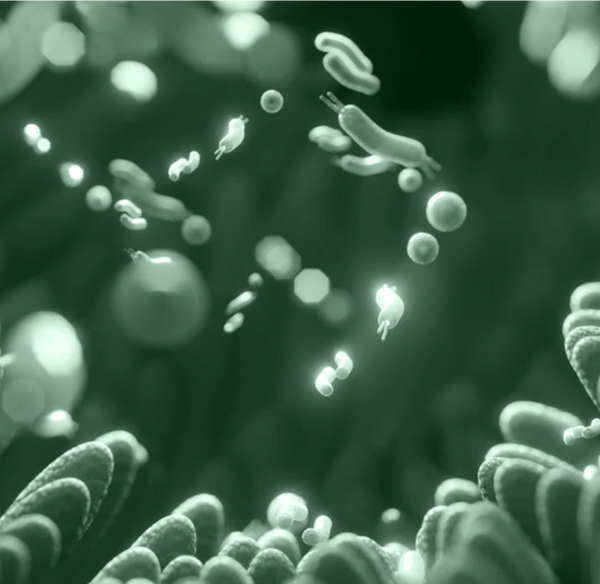
Wissenschaftlich fundiert. Entwickelt für dein Gehirn.
Wir glauben an Transparenz und fundierte Wissenschaft. Entdecke die Forschung hinter unseren Formeln, die Verbindung zwischen Gehirn und Darm und wie dein Mikrobiom Stimmung, Immunsystem und Widerstandskraft beeinflusst.























